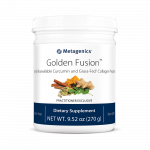We Live in an age of anxiety caused by stress
Our modern, rushed lifestyles have allowed stress to filter into almost every area of our lives. When you feel stressed your body reacts by releasing chemicals giving you more energy and strength. A good thing if you’re facing physical danger and a bad thing, if it’s due to emotional stress and there is no outlet for this extra energy and strength.
There are many different causes — could be physical (such as fear of something dangerous) or emotional (such as worry over your family or job.) Identifying what may be causing you stress is often the first step in learning how to better deal with it.
So stress is best described as a state of mental and emotional strain resulting from adverse or demanding events in your life. Of course, it’s impossible to avoid all the stressors that come your way.
The solution however, lies in the way you react to it.
How stress weakens the immune system
Scientists have long been aware of the connection between your stress and your immune system, and how it compromises your immunity.
The immune system is your body’s form of defence, which is made up a myriad of cells, tissues and organs, which work together to fight toxins and other foreign substances which threaten to do harm to your body. When you’re stressed the immune system’s ability to defend the body is reduced, and we become susceptible to infections etc.
This is how your immune system is compromised by stress:
- Studies have shown that the immune system of highly stressed people have sluggish responses to health challenges.
- The raised levels of the stress hormone cortisol, over-produced by chronic stress, can suppress the effectiveness of the immune system, making you more vulnerable to
 infections.
infections. - While cortisol does its job, the immune system receives signals to slow down, and if the stressor is not eased and cortisol stays high, the immune system may remain in low gear.
- The under-performing immune system can then result in serious inflammatory conditions, which is the cause of many ailments.
- The immunity of those who would normally have a healthy immune system, is subsequently lowered.
- Chronic levels leads to a lower amount of a certain protein being produced, which is instrumental in the signalling for “reinforcements” between immune cells. Without this communication the body is in danger of contracting acute illnesses, and may have to endure extended recovery times.
- Can have an indirect effect on the immune system if a person uses unhealthy coping strategies like binge-eating of unhealthy foods, and smoking or drinking much more than usual.
The bottom line is that if you have constant, chronic stress which is not effectively handled, you lay yourself open to various illnesses which can have a devastating effect on your health. Learning to cope in a healthy way will minimise the negative impact it may have on how your immune system functions.
Steps you can take to help reduce stress

- Follow a healthy diet, be sure to eat a good nourishing breakfast. Stress reduces levels of magnesium and vitamin C – be sure to boost your intake of these. For MORE detail on this read Boost Your Immunity and Keep Healthy All Year Round
- Stay away from sugars and bad fats (trans/processed). These put unnecessary stress on you, spiking blood insulin and your digestive system.
- Avoid excessive caffeine, which may give you a short boost, but could leave you feeling jittery and anxious as you wind down.
- It’s very important to get enough sleep. Sleep pattern disturbances, or even mild insomnia, will be perceived by the body as major stress. The cortisol will rise to new heights, and immunity will fall to new lows.
- Interact socially often, and talk to family and friends if you feel the need to unburden or get some advice. Boost the love hormone to reduce your stress.
The efficiency of your stress-coping skills will be the key to a vital, fully-functioning immune system.
Some good news
The good news is that a little stress is not a bad thing, as it keeps you alert to react to sudden, unexpected dangers. Short-term suppression of the immune system will not put you into danger, it is only when it’s chronic that you will be prone to infection and disease.
Brief, and short bouts of stress due to unforeseen events or circumstances in your life, will simply keep you on your toes to respond quickly to the situation, and will have no negative effect whatsoever on your immune system.
In conclusion
Stress is no laughing matter, as it plays a part in many diseases such as high blood pressure, heart disease, diabetes, cancer, AIDS, obesity, and chronic digestive problems (IBS), to name but a few.
Many women don’t realise the knock on effect that it has on their hormonal system – think Adrenal fatigue, PMS, hot flushes, skin problems. After all everything is connected, cortisol – the stress hormone causes all the other hormones to go out of balance.
Surveys conducted worldwide have revealed some disturbing facts.
- In the US results showed 75% of adults reported experiencing high to moderate stress in the past month, and more than half felt it had increased over the past year
- 91% of Australians presently feel stress in at least one part of their lives. Australian employers report absenteeism due to stress costs the economy about $14.2 billion annually.
- 3.7 million working days are lost annually in the UK, thanks to stress related issues, at a cost of about 28.3 billion British pounds.
A serious situation indeed!
You do not have to be a statistic of poor health because of stress. If you cannot handle it on your own, get assistance from someone who has the expertise to help you. Do what is best for your health.

My clients have seen the benefits of using herbs called adaptogens which have an amazing ability to help you’re body deal with stress, Adaptogens Might Be Your Answer To Fatigue, Stress or Anxiety
If you want to get all the latest news, blogs and programs be sure to sign up to Sue’s newsletter. You” also get your copy of the FREE e-book: 5 Foods that will help boost Your Energy Levels and Lose Weight Naturally. Sign up here
When you sign up you’ll also receive ‘The Good Health Guide’ newsletter with inspiration, practical, easy to follow tips and articles on healthy eating, recipes, exercise and natural medicines to help you live a healthier life.
These newsletter are all delivered straight to your inbox.
This is what readers of the ‘The Good Health Guide’ newsletter are saying about it:
-
Just to say that I do really like your newsletters and many thanks! I always read them all the way through and there’s not many newsletters I can say that about. Sue Saker – London UK www.thecouplescoach.co.uk,
-
Thanks for this – I love receiving your emails ! So interesting.
Emma – London UK The Decor Cafe. -
Fabulous, Excellent Sue!!
Julie Cleverdon – South Africa. Director of The MTN Science Centre mtnsciencentre.org.za -
I love your updates Sue -find them really informative and useful. Thank you for sharing important information so freely, what a gift to the health of humanity.
Pippa Dowding, Leadership Coach and Facilitator – Cape Town, South Africa -
This is a great newsletter Sue! (caroline@carolinecain.com)
-
Great artical, keep them coming. Doug – Frankfurt, Germany
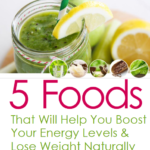
Get your copy of the FREE e-book:
5 Foods that will help boost Your Energy Levels and Lose Weight Naturally.
HERE
References.
www.mayoclinic.org/healthy-lifestyle/stress-management/in/stress/art-2004603
www.livestrong.com/article/22689-stress-affect-immune-system/
www.gostress.com/stress-facts/
 Raw cacao beans are full of flavonoids that act as natural antioxidants. Antioxidants protect the body from ageing and disease caused by free radicals. Raw cacao contains up to four times the antioxidants of traditional cocao powder.
Raw cacao beans are full of flavonoids that act as natural antioxidants. Antioxidants protect the body from ageing and disease caused by free radicals. Raw cacao contains up to four times the antioxidants of traditional cocao powder.


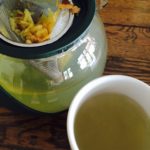 Nothing like a good cuppa tea to sort out the problems of the world. My grandmother loved her tea and it was the first thing we’d do when we visited her, I do miss being able to sit down and share a pot of tea with her.
Nothing like a good cuppa tea to sort out the problems of the world. My grandmother loved her tea and it was the first thing we’d do when we visited her, I do miss being able to sit down and share a pot of tea with her. need to know which one to use when and you may have be unaware of some of the other things these common herbal teas can be useful for. Chamomile is calming but so much more, peppermint for wind and so much more, ginger for nausea and so much more…..
need to know which one to use when and you may have be unaware of some of the other things these common herbal teas can be useful for. Chamomile is calming but so much more, peppermint for wind and so much more, ginger for nausea and so much more….. Rose
Rose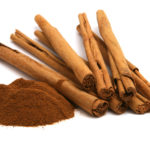 reduce your sugar cravings. By controlling blood sugar levels you can prevent spikes after meals, normalise your blood sugar levels and improve glucose control.
reduce your sugar cravings. By controlling blood sugar levels you can prevent spikes after meals, normalise your blood sugar levels and improve glucose control. Pelargonium (Pelargonium sidoides) is gaining huge popularity in Germany because of it’s effectiveness against the symptoms associated with colds and flus, and it is the best researched herbal cold and cough remedy. It helps to reduce the mucus of snotty noses and phlegm that makes it hard to breathe, improves a bad cough and any associated chest pain, and decreases congestion to help open the breathing passages.
Pelargonium (Pelargonium sidoides) is gaining huge popularity in Germany because of it’s effectiveness against the symptoms associated with colds and flus, and it is the best researched herbal cold and cough remedy. It helps to reduce the mucus of snotty noses and phlegm that makes it hard to breathe, improves a bad cough and any associated chest pain, and decreases congestion to help open the breathing passages.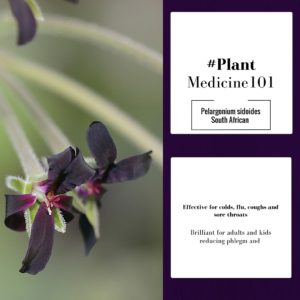 increases your body’s natural healing rate. Studies have found that 40-60% of patients suffering from acute bronchitis fully resolve their symptoms within a week of Pelargonium sidoides supplementation.Some people reported experiencing benefits after just two to three days. People that are not cured after a week still experience benefits from Pelargonium sidoides supplementation, since it can treat the symptoms associated with bronchitis, including headache, fever, fatigue, cough, chest pain while coughing, sputum in the lungs, rhonchi, and nasal dripping. A 2008 report published in Phytomedicine. In their analysis of six clinical trials testing pelargonium’s efficacy as an acute bronchitis treatment, the report’s authors found that pelargonium significantly improved symptoms of acute bronchitis without causing any serious side effects.
increases your body’s natural healing rate. Studies have found that 40-60% of patients suffering from acute bronchitis fully resolve their symptoms within a week of Pelargonium sidoides supplementation.Some people reported experiencing benefits after just two to three days. People that are not cured after a week still experience benefits from Pelargonium sidoides supplementation, since it can treat the symptoms associated with bronchitis, including headache, fever, fatigue, cough, chest pain while coughing, sputum in the lungs, rhonchi, and nasal dripping. A 2008 report published in Phytomedicine. In their analysis of six clinical trials testing pelargonium’s efficacy as an acute bronchitis treatment, the report’s authors found that pelargonium significantly improved symptoms of acute bronchitis without causing any serious side effects.




 possess such a wide spectrum of qualities and medicinal uses.
possess such a wide spectrum of qualities and medicinal uses. It’s great for infections or inflammation like achey joints.
It’s great for infections or inflammation like achey joints.